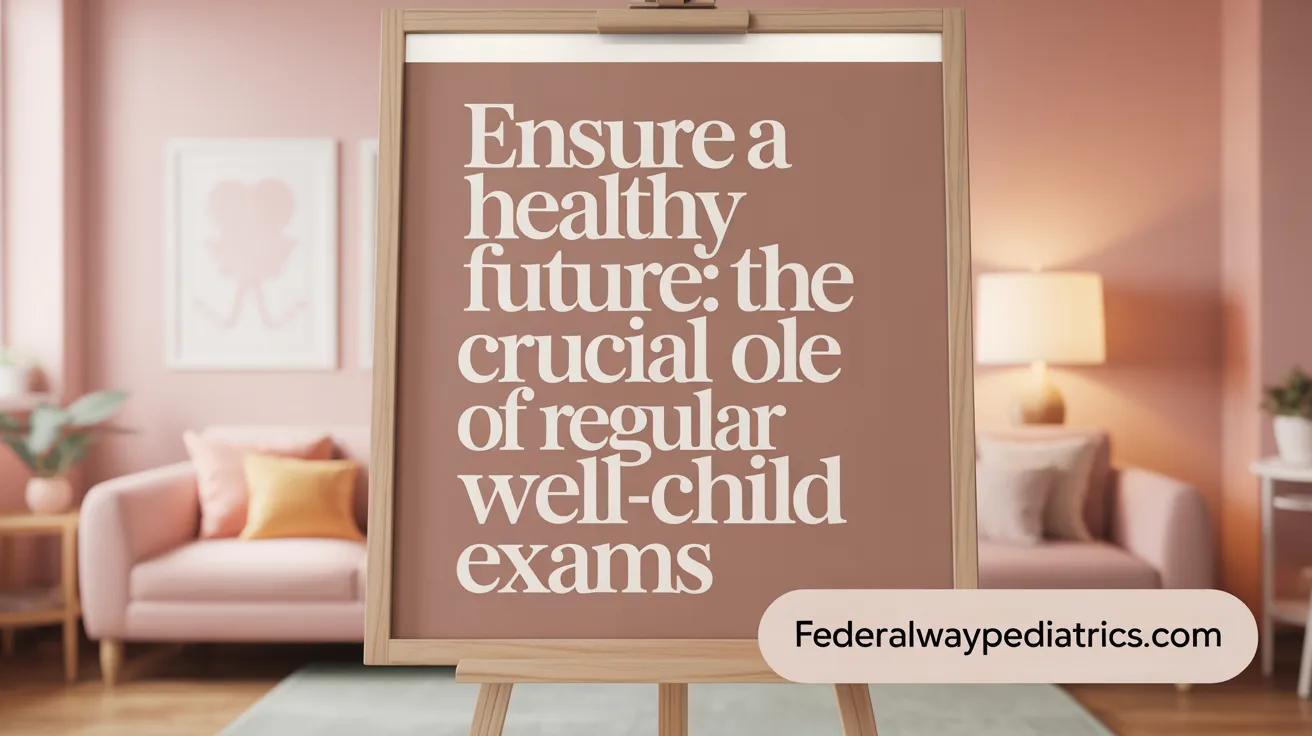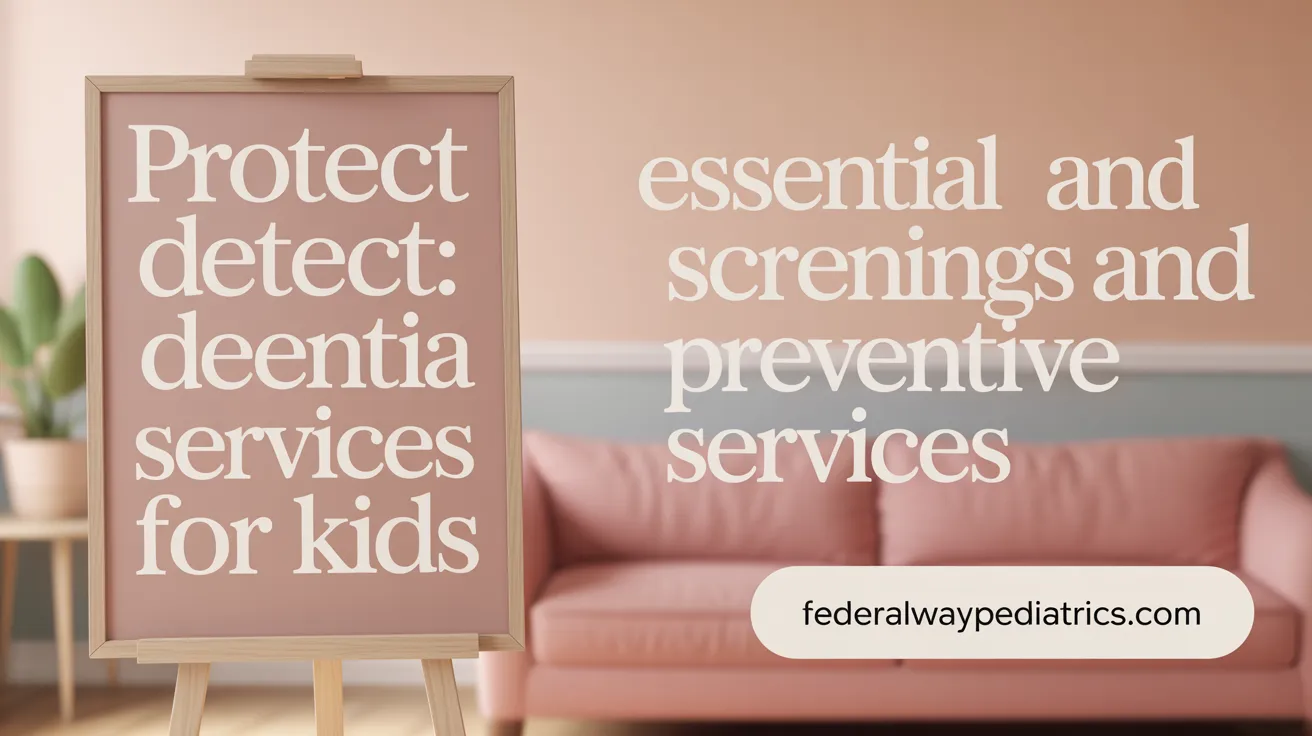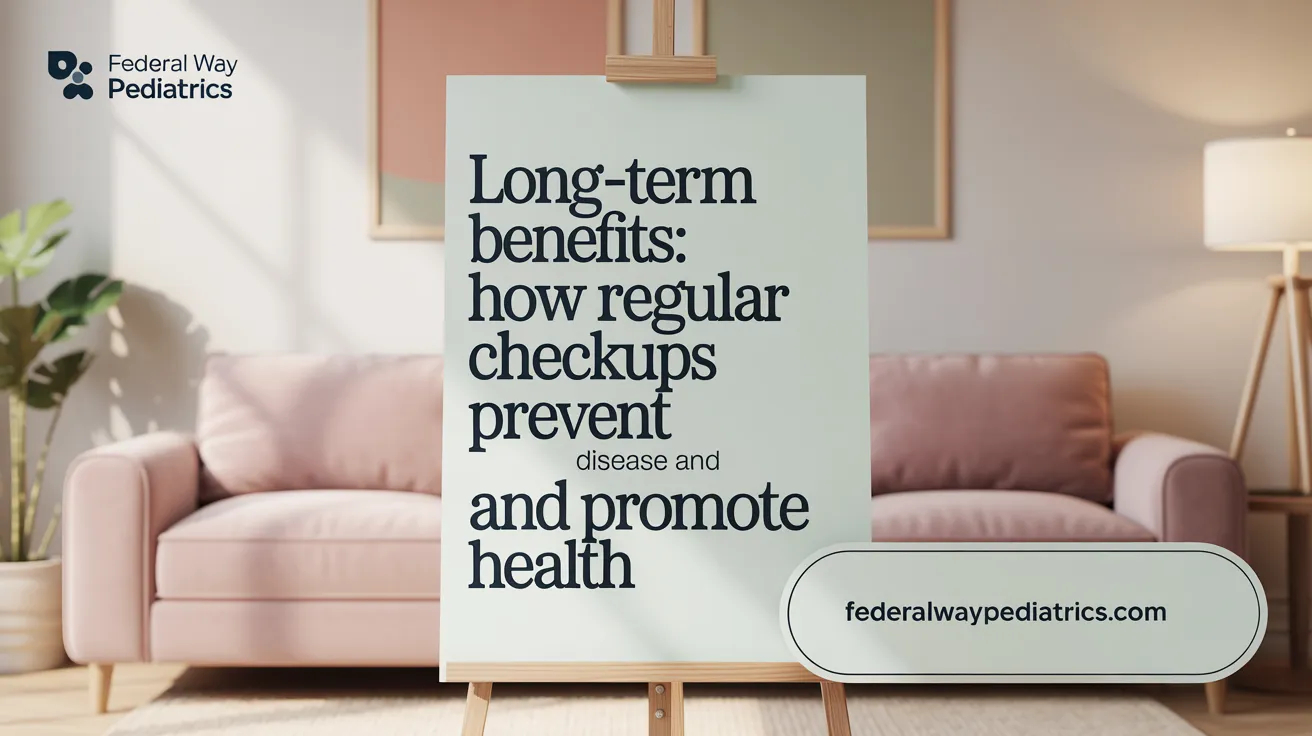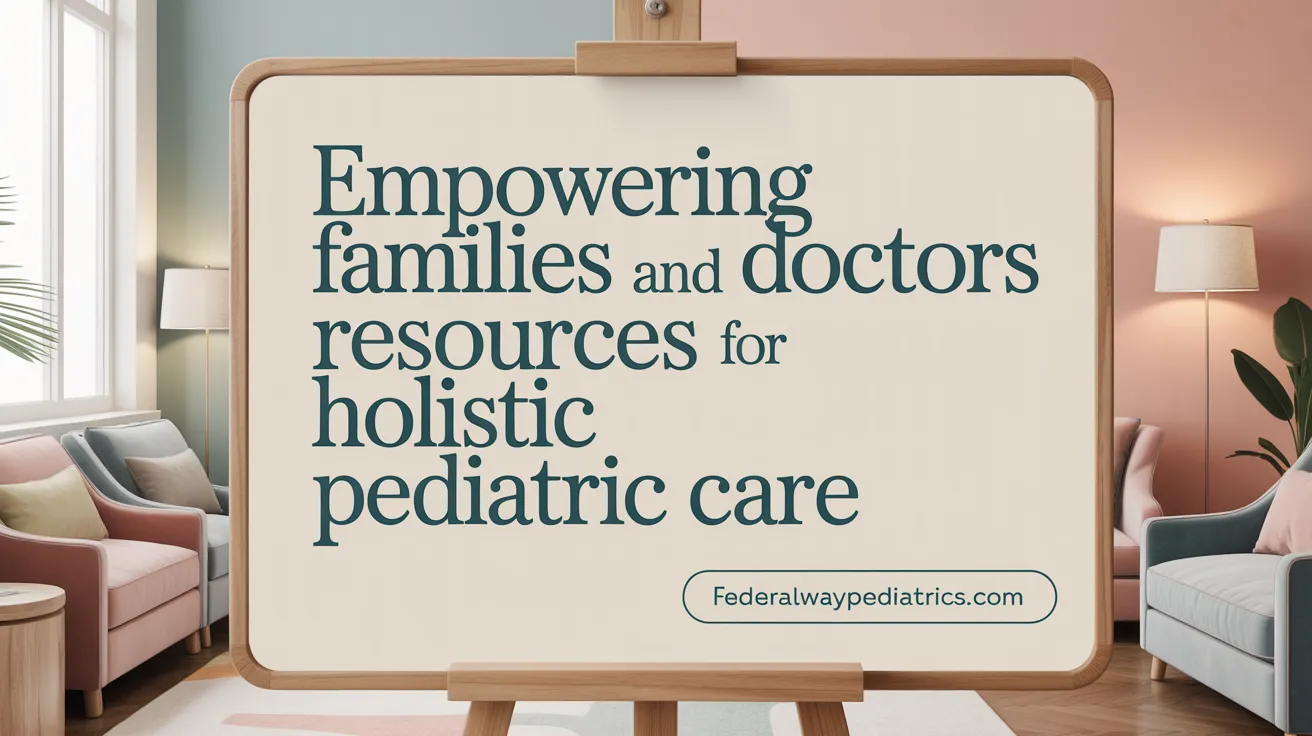Understanding the Crucial Role of Well-Child Exams
Regular well-child exams are a cornerstone of pediatric healthcare, essential for tracking children's growth, development, and overall wellness from infancy through adolescence. These routine visits offer a unique opportunity for early detection and prevention of illnesses, helping shape a healthy foundation that supports long-term well-being. This article explores the comprehensive benefits, recommended schedules, screenings involved, and the broader impact of consistent pediatric care on a child's future health.
Why Regular Well-Child Exams Are Essential for Lifelong Health

What is the significance of regular well-child exams for children's long-term health and development?
Regular well-child visits are fundamental in shaping a child's lifelong health journey. These routine visits allow healthcare providers to monitor vital growth parameters like height, weight, and head circumference, ensuring children develop appropriately for their age. They also enable early detection of delays or health issues such as vision or hearing impairments, behavioral concerns, or chronic conditions like asthma or diabetes.
Screenings performed during these visits, including assessments for autism spectrum disorder, ADHD, and emotional health, help identify problems early, paving the way for timely intervention. Immunizations administered during visits protect children from serious infectious diseases, safeguarding individual and public health.
Furthermore, these exams build a trusting relationship between families and healthcare providers. Such relationships facilitate honest communication, prompt addressing of worries, and ongoing preventive care. Regular checkups set a strong foundation for healthy habits, disease prevention, and positive health outcomes throughout childhood and into adulthood.
How do early detection and intervention benefit children?
Early identification of health or developmental issues through well-child visits can significantly improve outcomes. Interventions initiated promptly can help mitigate problems like speech delays, behavioral disorders, or physical health concerns, minimizing their impact over time. Detecting issues early often means less complex treatments and better integration into educational and social settings.
Why is building trust with healthcare providers important?
Establishing a consistent relationship with a child's healthcare provider encourages openness. Parents feel more comfortable discussing sensitive topics, and children may become more receptive to medical advice. This continuity ensures personalized care, better tracking of developmental progress, and a proactive approach to maintaining health.
Overall, these regular exams are more than check-ups—they are proactive steps toward ensuring a healthy, balanced, and thriving future for every child.
Comprehensive Schedule and Guidelines for Well-Child Visits
 The schedule for well-child visits, as recommended by the American Academy of Pediatrics (AAP), provides a structured timeline designed to monitor and promote a child's health from infancy through adolescence. Starting shortly after birth, the initial visit occurs within the first 3 to 5 days. Follow-up appointments are scheduled at 1 month, 2 months, 4 months, 6 months, 9 months, and 12 months. As children grow, checkups are recommended at 15 months, 18 months, then annually from age 2 onward up to age 21.
The schedule for well-child visits, as recommended by the American Academy of Pediatrics (AAP), provides a structured timeline designed to monitor and promote a child's health from infancy through adolescence. Starting shortly after birth, the initial visit occurs within the first 3 to 5 days. Follow-up appointments are scheduled at 1 month, 2 months, 4 months, 6 months, 9 months, and 12 months. As children grow, checkups are recommended at 15 months, 18 months, then annually from age 2 onward up to age 21.
Each of these visits serves multiple vital purposes. Pediatricians measure growth parameters such as height, weight, and head circumference, and conduct developmental assessments to ensure milestones are being met. These appointments include necessary immunizations aligned with recommended schedules, which help protect children from serious preventable diseases. Screening for common health issues, such as anemia, lead exposure, hearing impairment, and behavioral or developmental concerns, is integral to these exams.
At specific ages, additional screenings are performed. For example, vision and hearing tests are routinely conducted, and assessments for developmental delays or conditions such as autism spectrum disorder are performed at recommended intervals. Screenings for mental health and social-emotional development become part of evaluations, especially during later childhood and adolescence.
Adherence to this well-structured schedule is critical for early detection of health issues, monitoring developmental progress, and promoting healthy behaviors. While the exact timing may be tailored to individual health needs, consistently following the schedule maximizes the long-term health and well-being of children. Healthcare providers also work to improve attendance rates, focusing on reducing barriers such as transportation challenges and access issues, especially in underserved populations.
In sum, following the recommended pediatric visit schedule ensures comprehensive health monitoring, disease prevention through immunizations, early recognition of developmental delays, and building a trusting relationship between families and the healthcare system. These steps form the foundation for lifelong health, wellness, and resilience.
Key Preventive Services and Screenings in Well-Child Exams
 Routine pediatric visits, or well-child visits, include comprehensive physical exams and assessments tailored to the child's age and development. These visits encompass a wide range of screenings such as immunizations, vision and hearing tests, developmental evaluations, blood pressure monitoring, and assessments for anemia, lead exposure, and hyperbilirubinemia. Additional screenings may involve behavioral, mental health, and social-emotional assessments, including depression screening starting at age 12 and behavioral evaluations as needed (Well-Child Visits - American Academy of Pediatrics Guidelines).
Routine pediatric visits, or well-child visits, include comprehensive physical exams and assessments tailored to the child's age and development. These visits encompass a wide range of screenings such as immunizations, vision and hearing tests, developmental evaluations, blood pressure monitoring, and assessments for anemia, lead exposure, and hyperbilirubinemia. Additional screenings may involve behavioral, mental health, and social-emotional assessments, including depression screening starting at age 12 and behavioral evaluations as needed (Well-Child Visits - American Academy of Pediatrics Guidelines).
Preventive services also include oral health risk assessments, fluoride varnish applications, and discussions on nutrition, safety, and behavioral health. Many of these services are covered at no cost when delivered by an in-network provider, emphasizing early detection, immunization, and overall health promotion throughout childhood and adolescence (Preventive care benefits for children).
Immunization schedules are designed to protect children from serious infectious diseases like measles, polio, and chickenpox. Vaccines are administered according to age-specific timelines, which have been extensively tested for safety and efficacy. Proper immunization helps build immunity and prevent the spread of contagious illnesses (Well-child visits immunization schedule and benefits).
Beyond physical screenings, mental health evaluations are integrated into well-child exams. Starting at age 12, screening for depression becomes routine, and behavioral assessments for conditions such as ADHD or autism are conducted at appropriate ages. These assessments enable early identification of emotional and behavioral challenges, allowing for timely intervention (Mental health assessments in well-child visits).
Coverage for preventive services varies but is generally comprehensive under most health plans, including Medicaid and Marketplace plans. Services like developmental screenings, immunizations, oral health assessments, and behavioral evaluations are often covered in full, ensuring children receive essential preventive care without financial barriers (Health care coverage for preventive services in children).
In summary, well-child visits serve as a foundation for preventive health, combining immunizations, screenings, and assessments to support healthy growth and development while shielding children from preventable illnesses and detecting health issues early.
Impact of Well-Child Checkups on Long-Term Health and Disease Prevention

How do well-child checkups impact long-term health outcomes and disease prevention?
Regular well-child visits are vital in shaping a child's lifelong health journey. These checkups facilitate timely immunizations that protect against serious illnesses such as measles, polio, and influenza. Beyond vaccines, they serve as opportunities for early detection of health, developmental, and behavioral issues, allowing for prompt intervention which can mitigate long-term complications.
During these visits, pediatricians monitor physical growth and developmental milestones, identifying delays or concerns early on. Mental health assessments also help in recognizing issues like anxiety, depression, or autism spectrum disorders before they escalate.
Addressing social determinants of health is another critical aspect. Factors like transportation, language barriers, and socioeconomic challenges can hinder access to care. Tackling these barriers improves attendance among vulnerable groups, ensuring equity in preventive health services.
Repeated contact with healthcare providers reduces reliance on emergency departments and hospital stays, promoting a healthier childhood environment. This proactive approach not only prevents immediate health problems but also reduces the risk of chronic illnesses like obesity, diabetes, and heart disease later in life.
Overall, these visits lay a strong foundation for lifelong health by encouraging healthy behaviors, fostering trust with healthcare providers, and enabling early, targeted interventions. Participating in regular checkups ultimately leads to better health outcomes, emphasizing their importance in preventive pediatric care.
Supporting Parents and Providers: Educational Resources and Holistic Care
 There are numerous guidelines and toolkits available to support both parents and healthcare providers in maintaining optimal pediatric health. The American Academy of Pediatrics (AAP) provides comprehensive resources such as pamphlets, web-based materials, and practical toolkits that cover vital topics like vaccination schedules, nutrition, developmental milestones, and safety protocols. These resources are designed to educate families and assist clinicians in delivering consistent, evidence-based care.
There are numerous guidelines and toolkits available to support both parents and healthcare providers in maintaining optimal pediatric health. The American Academy of Pediatrics (AAP) provides comprehensive resources such as pamphlets, web-based materials, and practical toolkits that cover vital topics like vaccination schedules, nutrition, developmental milestones, and safety protocols. These resources are designed to educate families and assist clinicians in delivering consistent, evidence-based care.
A cornerstone of pediatric preventive care is the Bright Futures initiative, supported by the AAP and U.S. Department of Health and Human Services. Bright Futures offers detailed, evidence-based guidelines for well-child visits, known as the Periodicity Schedule. These guidelines guide health supervision from birth to young adulthood, emphasizing the importance of routine screenings, developmental assessments, and health education tailored to each child's stage of growth.
In addition to these guidelines, resources such as the Merck Manuals Pediatrics, AccessPediatrics, and the CDC's Red Book Atlas provide in-depth pediatric information for clinicians. These tools ensure healthcare providers stay updated with the latest evidence-based practices, including screening recommendations, immunization updates, and management of common childhood conditions. Professional development programs, including online courses and certifications like NRP®, further support clinicians in delivering high-quality, comprehensive pediatric care.
Well-child exams are central to promoting child well-being. During these visits, pediatricians evaluate physical growth, developmental progress, emotional health, and social behavior. They enable early identification of potential health issues, such as delays or behavioral concerns, which can be addressed promptly to prevent long-term complications. These exams also facilitate discussions about healthy habits, safety, and family concerns, fostering trust and cooperation.
Furthermore, regular well-child visits support ongoing health monitoring and preventive care, including vaccinations and screenings for vision, hearing, and mental health. By building strong relationships, families become more engaged in their child's health journey, leading to better health outcomes. Educating parents with available resources and ensuring providers are equipped with up-to-date guidelines are vital steps toward a holistic approach that promotes lifelong child health and well-being.
For more information on pediatric health resources for parents and clinicians, searching keywords like 'pediatric health education,' 'well-child care guidelines,' and 'preventive pediatric services' can provide valuable, current materials tailored to support healthy childhood development.
Maintaining Health and Wellness Through Regular Pediatric Care
Regular well-child exams serve as an indispensable part of safeguarding a child's health journey, ensuring comprehensive monitoring of physical growth, developmental progress, and preventive care through immunizations and screenings. Adherence to the recommended visit schedule creates opportunities for early detection, intervention, and promotion of healthy habits that extend into adulthood. Overcoming barriers and enhancing accessibility furthers health equity and improves outcomes, especially for vulnerable populations. Empowered with robust educational resources and supported by trusted healthcare partnerships, families and providers can collaboratively foster safer, healthier childhoods. Ultimately, investing in routine well-child visits lays the groundwork for lifelong wellness, resilience, and a bright, healthy future for every child.
